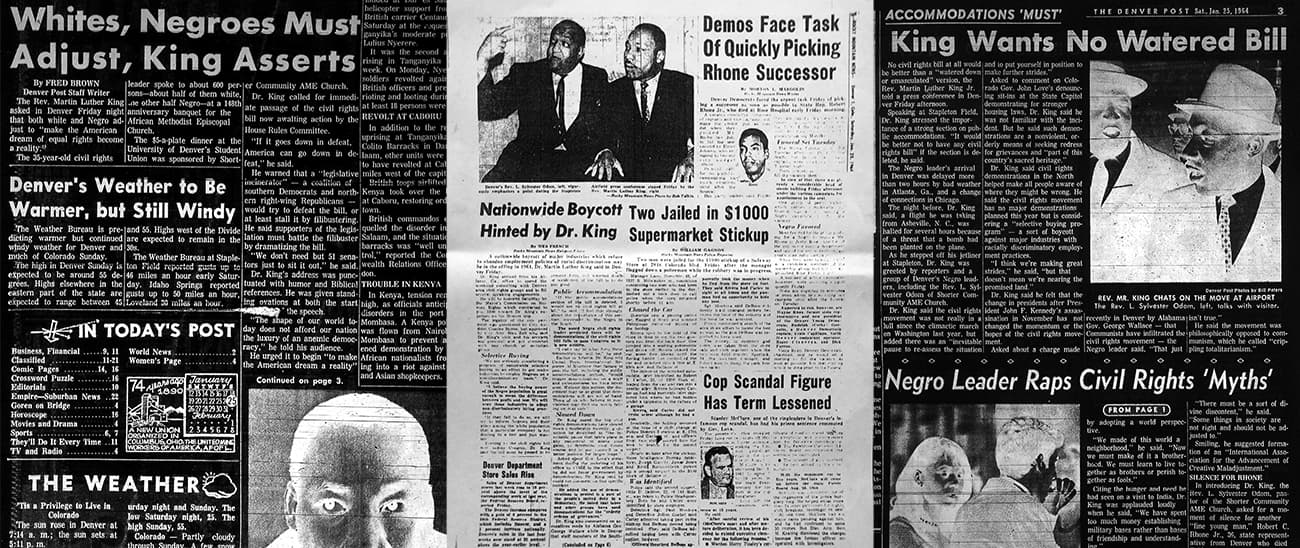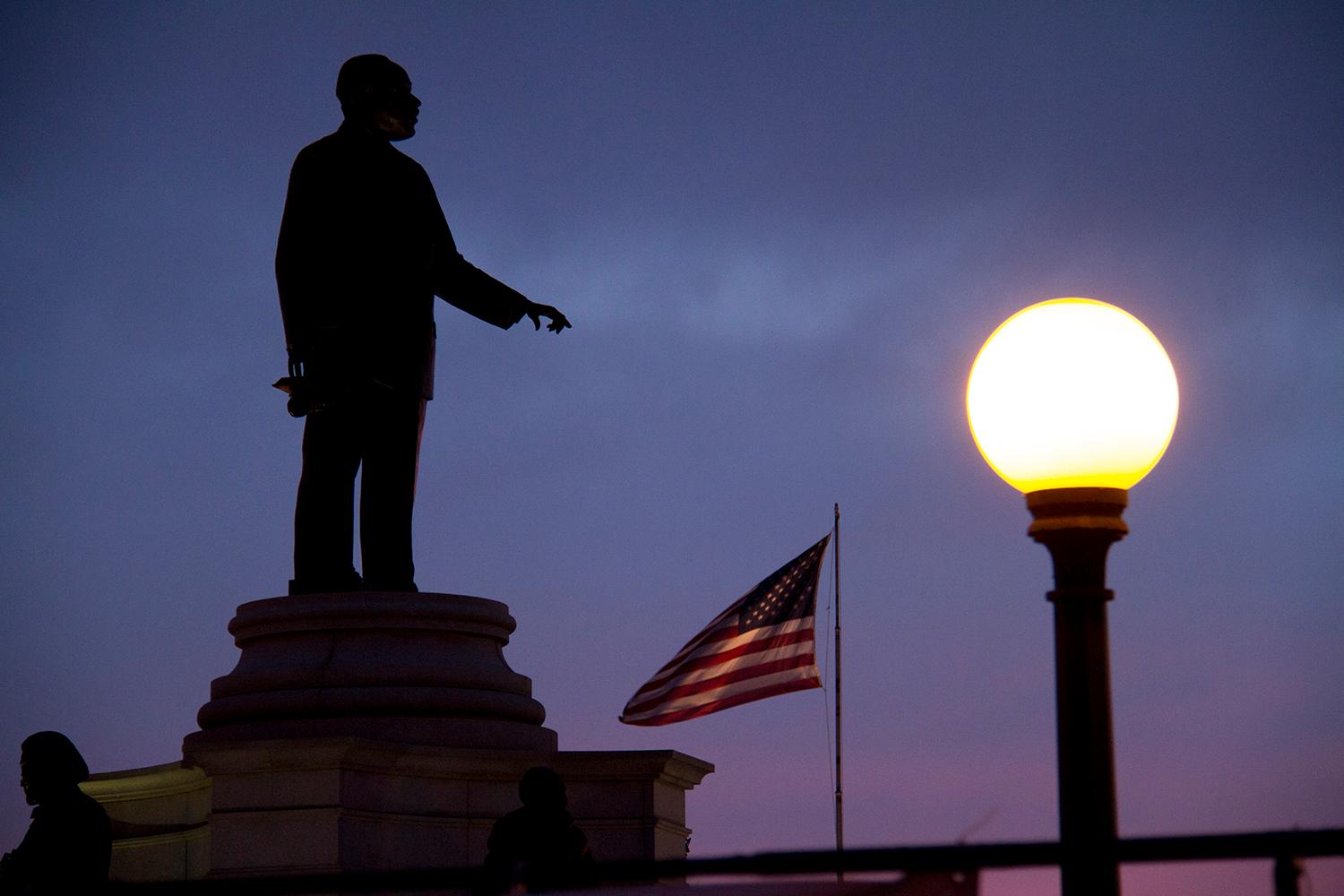
In January 1964, Martin Luther King Jr. arrived late in Denver after bad weather and a bomb threat delayed plane trips from the South.
King told a room of about 600 people at the University of Denver, "The shape of our world today does not afford our nation the luxury of an anemic democracy."
And in order to make the American dream a reality, we needed a global perspective, he said.
"We made of this world a neighborhood. Now we must make of it a brotherhood. We must learn to live together as brothers or perish together as fools," King said.
DU adjunct instructor Fred Brown captured the civil rights leader's words while reporting for the Denver Post.
In exchange for lectures, consultations and question-answer sessions, Denver's Commission on Community Relations put $200 -- $1,567 in 2017 dollars -- towards Kings' expenses citing his "knowledge, experience, and skill; as an authority on human relations; and as an individual."
It was King's first trip to Denver, and he was already well established as a leading voice for civil rights and equality. The summer before, he made his iconic "I Have A Dream" speech in Washington, D.C. Later in 1964, he would be awarded the Nobel Peace Prize for human rights.
Denver's auditor at the time questioned whether taxpayer dollars should go toward bringing King due to his position as leader of the Southern Christian Leadership Conference. But the city attorney said King was providing "personal services" not associated with any church and that his visit fit with the commission's goal of "teaching the need for eliminating group prejudice; intolerance, bigotry, disorder and discrimination."
In Denver, King criticized, "the appalling silence of the good people" -- a message he delivered several times in various forms. He also made his frequent appeal against the myth that only time and patience could bring equality and that legislation couldn't help.
"The law cannot make a man love me," he said. "But it can keep him from lynching me."
MLK wouldn't visit Denver again until 1967. A year later, he'd be assassinated in Memphis, Tennessee.
Business & data reporter Adrian D. Garcia can be reached via email at [email protected] or twitter.com/adriandgarcia.
Subscribe to Denverite's newsletter here.












